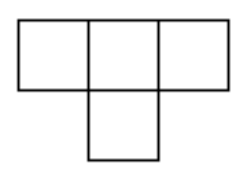Problems
A set is a collection of elements where each element appears only once. The elements are not ordered, and there is no rule connecting them. Even a set with no elements (an empty set) counts as a set. The collections \(\{a,b,c,d\}\) and \(\{3,2,45,1,0,\pi\}\) are both examples of sets.
Let \(C\) be a set with \(n\) elements. How many different sets can be formed using the elements of \(C\)?
A rectangular parallelepiped of the size \(m\times n\times k\) is divided into unit cubes. How many rectangular parallelepipeds are formed in total (including the original one)?
In the Land of Linguists live \(m\) people, who have opportunity to speak \(n\) languages. Each person knows exactly three languages, and the sets of known languages may be different for different people. It is known that \(k\) is the maximum number of people, any two of whom can talk without interpreters. It turned out that \(11n \leq k \leq m/2\). Prove that then there are at least \(mn\) pairs of people in the country who will not be able to talk without interpreters.
Let’s compute the infinite sum: \[1+2 + 4 + 8 + 16 + ... + 2^n + ... = c\] Observe that \(1+2+4+8+... = 1 + 2(1+2+4+8+16+...)\), namely \(c = 1+2c\), then it follows that \[c = 1+2+4+8+... = -1.\]
Let’s prove that any \(90^{\circ}\)
angle is equal to any angle larger than \(90^{\circ}\). On the diagram

We have the angle \(\angle ABC =
90^{\circ}\) and angle \(\angle BCD>
90^{\circ}\). We can choose a point \(D\) in such a way that the segments \(AB\) and \(CD\) are equal. Now find middles \(E\) and \(G\) of the segments \(BC\) and \(AD\) respectively and draw lines \(EF\) and \(FG\) perpendicular to \(BC\) and \(AD\).
Since \(EF\) is the middle
perpendicular to \(BC\) the triangles
\(BEF\) and \(CEF\) are equal which implies the equality
of segments \(BF\) and \(CF\) and of angles \(\angle EBF = \angle ECF\), the same about
the segments \(AF=FD\). By condition we
have \(AB=CD\), thus the triangles
\(ABF\) and \(CDF\) are equal, thus \(\angle ABF = \angle DCF\). But then we have
\[\angle ABE = \angle ABF + \angle FBE =
\angle DCF + \angle FCE = \angle DCE.\]
Jess and Tess are playing a game colouring points on a blank plane. Jess is moving first, she picks a non-colored point on a plane and colours it red. Then Tess makes a move, she picks \(2022\) colourless points on the plane and colours them all green. Jess then moves again, and they take turns. Jess wins if she manages to create a red equilateral triangle on the plane, Tess is trying to prevent that from happening. Will Jess always eventually win?
Can you cover a \(10 \times 10\) board using only \(T\)-shaped tetrominos?

Can you cover a \(10 \times 10\) square with \(1 \times 4\) rectangles?
Two opposite corners were removed from an \(8 \times 8\) chessboard. Is it possible to cover this chessboard with \(1 \times 2\) rectangular blocks?
One unit square of a \(10 \times 10\) square board was removed. Is it possible to cover the rest of it with \(3\)-square \(L\)-shaped blocks?
